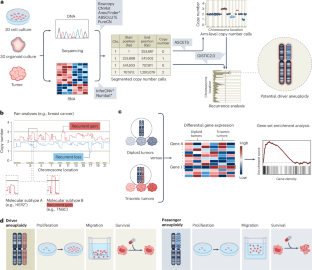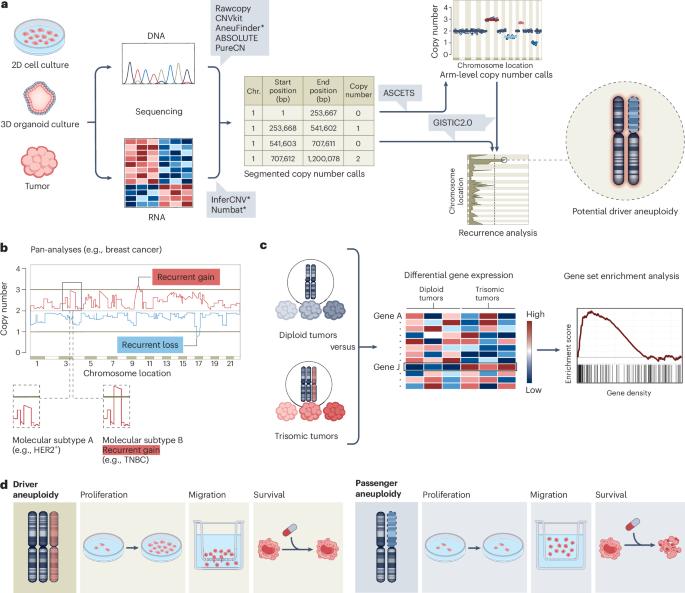非整倍体是人类癌症的驱动因素
IF 29
1区 生物学
Q1 GENETICS & HEREDITY
引用次数: 0
摘要
非整倍体(染色体组成异常)是癌症发生和发展的主要因素,也是癌症治疗反应和临床结果的重要决定因素。尽管非整倍体被认为是人类癌症的标志,但其作为癌症 "驱动因素 "的确切作用在很大程度上仍不为人所知。确定导致常见非整倍体复发的特定遗传因素仍是癌症遗传学的一大挑战。在本综述中,我们将讨论复发性非整倍体及其作为肿瘤发生驱动因素的功能。然后,我们深入探讨了驱动非整倍体的驱动基因的识别和功能特征,并研究了利用癌症基因组学数据和癌症模型发现这些驱动基因的新策略。最后,我们探讨了利用这些常见基因改变的功能性后果来靶向治疗癌症驱动非整倍体的机会。本文章由计算机程序翻译,如有差异,请以英文原文为准。


Aneuploidy as a driver of human cancer
Aneuploidy, an abnormal chromosome composition, is a major contributor to cancer development and progression and an important determinant of cancer therapeutic responses and clinical outcomes. Despite being recognized as a hallmark of human cancer, the exact role of aneuploidy as a ‘driver’ of cancer is still largely unknown. Identifying the specific genetic elements that underlie the recurrence of common aneuploidies remains a major challenge of cancer genetics. In this Review, we discuss recurrent aneuploidies and their function as drivers of tumor development. We then delve into the context-dependent identification and functional characterization of the driver genes underlying driver aneuploidies and examine emerging strategies to uncover these driver genes using cancer genomics data and cancer models. Lastly, we explore opportunities for targeting driver aneuploidies in cancer by leveraging the functional consequences of these common genetic alterations. This Review discusses recurrent aneuploidies driving human cancer, methods to identify them and strategies to uncover underlying driver genes. It highlights genomic and experimental approaches to study and ultimately target driver aneuploidies.
求助全文
通过发布文献求助,成功后即可免费获取论文全文。
去求助
来源期刊

Nature genetics
生物-遗传学
CiteScore
43.00
自引率
2.60%
发文量
241
审稿时长
3 months
期刊介绍:
Nature Genetics publishes the very highest quality research in genetics. It encompasses genetic and functional genomic studies on human and plant traits and on other model organisms. Current emphasis is on the genetic basis for common and complex diseases and on the functional mechanism, architecture and evolution of gene networks, studied by experimental perturbation.
Integrative genetic topics comprise, but are not limited to:
-Genes in the pathology of human disease
-Molecular analysis of simple and complex genetic traits
-Cancer genetics
-Agricultural genomics
-Developmental genetics
-Regulatory variation in gene expression
-Strategies and technologies for extracting function from genomic data
-Pharmacological genomics
-Genome evolution
 求助内容:
求助内容: 应助结果提醒方式:
应助结果提醒方式:


